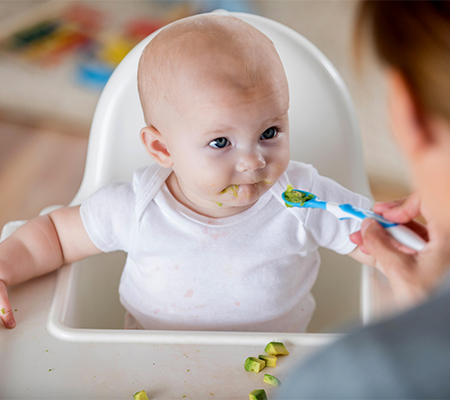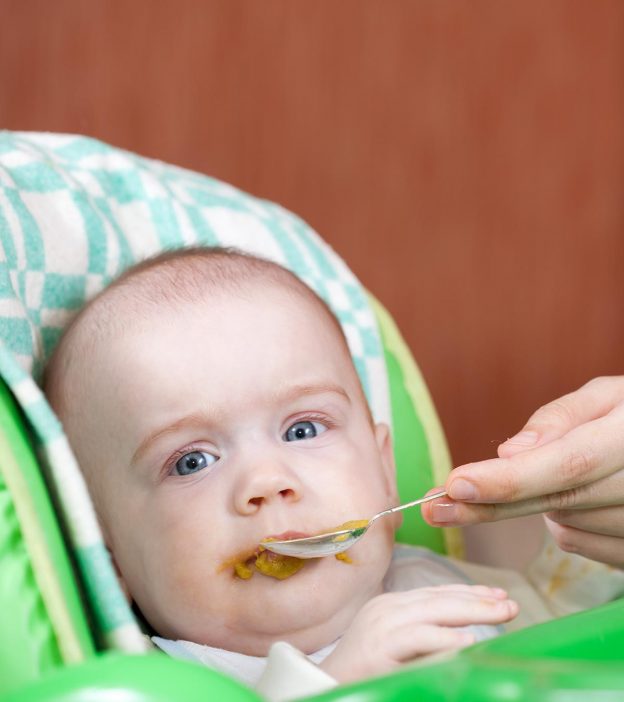botulism in babies timeline
They need to be treated in a hospital. Title 17 California Code of Regulations CCR 2500 2593 26415-264320 and 2800-2812 requires that healthcare providers report known or suspected cases of infant botulism to the jurisdiction in which the patient resides.

Babydoc Club Irl Soothers Loved By Many Babies Parents But Don T Be Tempted To Dip Baby S Dummy In Anything Sweet Such As Sugar Honey Or Medicines Products Containing Sugar As It
Although infant botulism is rare timely diagnosis is essential because 50 to 70 of affected infants may require mechanical ventilation.

. First recognized in 1976 infant botulism occurs globally and is the most common form of human botulism in the United States. Causes of Infant Botulism Babies can get botulism from the food they eat when. Byzantine Emperor Leo VI documented cases of fatal food poisoning in the.
Although isolated cases of C. Although about 98 of affected infants present between 1 and 6 months of age infant botulism is reported as early as the first week of life 3 and as late as 12 months of age. Infant botulism occurs mostly in young infants between 6 weeks and 6 months of age.
Foodborne botulism was the first of the 3 entities to be described. In the United States most cases of botulism occur in infants with an incidence of approximately two cases per 100000 live births. Infant botulism is an illness that can occur when a baby ingests the bacterium Clostridium botulinum.
Infant botulism usually affects babies who are 3 weeks to 6 months old. The diagnosis may be challenging because of its rareness especially in patients showing atypical presentations or. Butyricum type E and C.
Propagation of this toxin under different circumstances can lead to food-borne wound or infant botulism. Infant botulism usually affects babies who are 3 weeks to 6 months old. Infant botulism is a rare but serious gastrointestinal condition caused by exposure to Clostridium botulinum C.
Baby Milestones By Month Your Baby S First Year Development Stages Baby Development Milestones Baby Milestones Baby Development Activities. If babies up to about 6 months old swallow botulinum spores the spores can germinate into bacteria. Thats because their mature digestive systems can move the toxins through the body before they cause harm.
When a person over the age of 1 year harbors the C. Do not wait for laboratory confirmation to initiate consultation or treatment. This most common form of botulism begins after Clostridium botulinum bacterial spores grow in a babys intestinal tract.
But all babies are at risk for it until their first birthday. Symptoms generally begin 12-36 hours after eating contaminated food but may occur as early as a few hours and as late as 10 days. Unlike food-borne botulism infant botulism is caused by ingestion of spores not by ingestion of a preformed toxin.
Infant botulism Infant botulism occurs mostly in infants under 6 months of age. Botulinum spores which germinate into bacteria that colonize in the gut and release toxins. Predominantly found west of the Mississippi River.
Bacteria from the spores can grow and multiply in a babys intestines producing a dangerous toxin. It can affect babies up to age 1 but is most common between three weeks and six months. What is infant botulism IB.
It typically occurs in babies between the ages of 2 months and 8 months. How soon after exposure would symptoms develop. Symptoms of botulism in infants may occur up to 14 days later.
About 90 percent of infants with botulism are younger than. While this bacterial infection primarily affects newborns aged one to six months it has also been observed in babies as young as one week and as. Botulism in babies timeline Friday June 24 2022 It typically occurs in babies between the ages of 2 months and 8 months.
Infant botulism most commonly affects babies 3 weeks to 6 months old but babies are at risk until they are 1 year old. The condition can occur in infants up to age 12 months. Predominantly found east of the Mississippi River.
Infant botulism is a novel form of human botulism in which ingested spores of the bacterium Clostridium botulinum colonize and grow in the infants large intestine and produce botulinum neurotoxin in it. The source of the spores is usually unknown in most cases although some have been traced to. These bacteria are harmless to older kids and adults.
Botulinum toxin within the gastrointestinal tract infantile botulism in children and adults. Babies are at risk of infant botulism until they reach about 1 year of age. Infant botulism occurs most often in infants 6 months.
Botulinum to flourish and colonize the large intestine resulting in infant botulism. It may occur as early as early as 6 days and as late as 1 year. Infant botulism most commonly affects babies 3 weeks to 6 months old but babies are at risk until they are 1 year old.
Infants with botulism appear lethargic feed poorly are constipated have a weak cry and poor muscle tone. The action of the toxin in the body produces constipation. Consultation Treatment and Testing Steps Infant botulism is a medical emergency.
Botulism is a broad term encompassing 3 clinical entities caused by botulinum toxin. Different from foodborne botulism caused by ingestion of pre-formed toxins in food it occurs when infants ingest C. Risk factors include swallowing honey as a baby being around contaminated soil and having less than one stool per day for a period greater than 2 months.
Baratii type F have been reported C. Infant botulism is a rare and underdiagnosed disease caused by BoNT-producing clostridia that can temporarily colonize the intestinal lumen of infants less than one year of age. Botulism is a potentially lethal neuroparalytic disorder caused by the toxins produced by Clostridium botulinum.
The lack of protective intestinal flora and Clostridium-inhibiting bile acids in a babys intestines allows C. All types of botulism can be fatal and are considered medical emergencies. The youngest reported patient was 2 weeks and the oldest was 12 months.
Botulinum types A and B primarily cause infant botulism 4. Infant botulism occurs most often in infants 6 months. Please report any suspect infant botulism case to your local health jurisdiction through appropriate channels.

When Can Babies Eat Cheerios Sneakpeek

Family Found Answers At Kentucky Children S Hospital When Infant Daughter Developed Mysterious Illness Uk Healthcare

From Milk To Solids Baby Food Guidelines For The First Year Baby Food Chart Baby Food By Age Baby Food Timeline

Hunger Cues Newborn Feeding Baby Calm Baby Breastfeeding

Starting Solid Food La Leche League Gb

5 Tips To Transition Your Baby To Solid Food Shine365 From Marshfield Clinic

Weaning 101 Starting Your Baby On Food

Sengupta Hospital And Research Institute Infant Botulism Happens When A Baby Ingests Bacteria That Produce A Toxin Inside The Body Here Are The Symptoms Facebook
/oksanakuzmina00-0d38721bf51b4a2db564bde93e627237.jpg)
Baby Teeth Frequently Asked Questions
:max_bytes(150000):strip_icc():gifv()/GettyImages-670405842-2000-974cea6768c948e4bebe571c3548883d.jpg)
Baby S First Foods How To Introduce Solids

Weaning 101 Starting Your Baby On Food

6 Month Old Baby S Food Chart And Recipes

When Can Babies Eat Cereal And How To Introduce Other Solid Foods Familyeducation

When Do Babies Eat Solid Food Happiest Baby
/GettyImages-854287660-b71e81cb670d4c5ca55526c44ab7130e.jpg)
Newborn Cold What You Should Know

Babydoc Club Irl Honey Can Be Dangerous For Baby Delicious In Porridge But This Sweet Treat Has Been Linked To Rare But Serious Infant Botulism The Fsai Food Safety Authority

Welcome To The Infant Botulism Treatment And Prevention Program

Babydoc Club Irl New Parents Honey Can Be Harmful For Baby Yes It S Tasty In Porridge But This Sweet Treat Has Been Linked To Rare But Serious Infant Botulism
:max_bytes(150000):strip_icc()/babys-first-year-14-5b7c174cc9e77c0050bca8cc.png)